It's wet in Northland. Farmers around Dargaville and Ruawai say while the paddocks are moist, the heavy deluge expected this week was actually being dumped at sea. On the east coast, it's a different story, however, with some farmers closer to Whangarei dealing with flooded paddocks forcing stock to be moved to higher ground.
Extensive plantings of brassicas and salads in Auckland happened through April. Regular rainfall was enough for most crops to maintain fast growth in the mild weather. At the end of the month, heavy supplies of broccoli and lettuce were at low prices in shops. The storage quality of onions is unknown at this point but there are more second-grade and rejects than normal being removed from the grading tables. The poor summer has had additional negative effects with pumpkins likely to be in short supply later in winter. Lack of winter chilling has hindered kiwifruit harvesting.
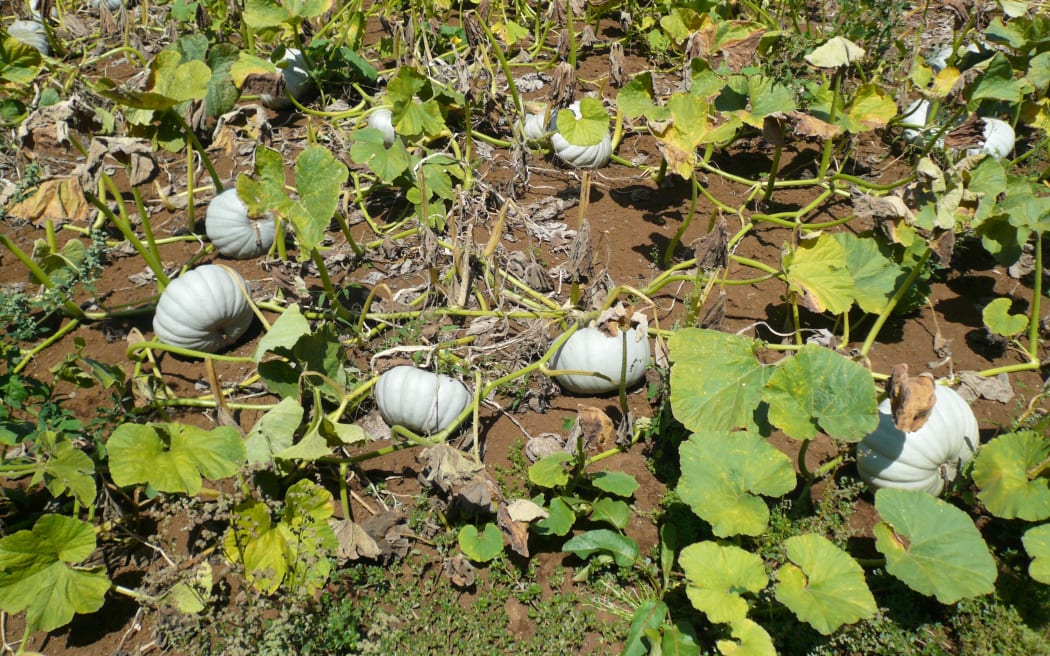
Photo: Supplied
Our contact in Waikato says it's the best second half, of any season, he's ever had. It's gone from one extreme to another - Spring was a period he would rather forget, but now he's had phenomenal grass growth for the past month and a half. He's ready for calving, that's how much grass there is. In saying that, he is feeding out some supplements, as the water in the grass makes the cow's poo too runny, so he's trying to build up some fiber in the diet. Farming-wise, this season has been an absolute dream. But financially, despite an awesome payout, inflation and rising on-farm costs will keep the coin purse tight.
Rain in Bay of Plenty this week is more like a river - it just keeps coming in. In some parts of the region, 250 millimeters of rain had fallen in 48 hours. The water table was already high from continuous rain through April so it's not taking much for areas to flood - and that's impacting the quality of pastures in flatter areas. And, in the busiest weeks of the kiwifruit season, work has stalled because of the rain.
Prices for weaner calves in King Country are high. It's music to the ears of farmers who are sending most of their fat lambs away this month and getting a good price for those too. Backlogs at the works experienced through Summer are dropping away now, although dairy farmers are sending their cows in which is causing a struggle for beef farmers to also get their cattle in the door. A couple of frosts a week or so ago made many think it was all going to turn cold, but mild days mixed with a bit of rain have farmers in shorts still and plenty of grass in the paddocks.
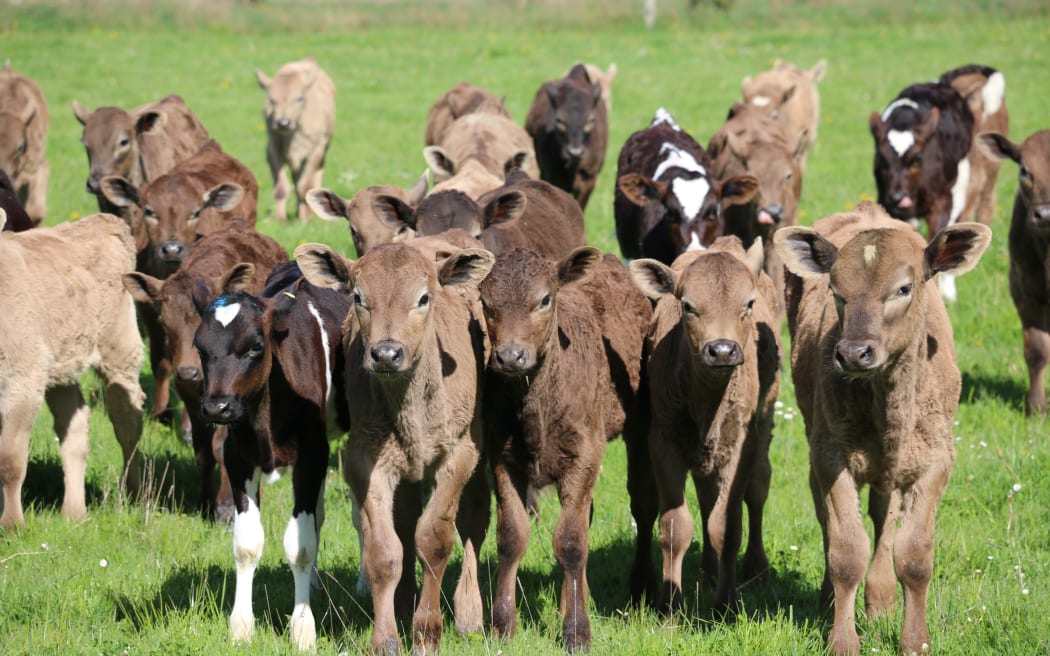
Photo: RNZ / Cosmo Kentish-Barnes
Hay is a precious commodity in Taranaki. It's been hard to make with wet weather a constant, and some farmers are walking into winter a bit light on supplements. But will good grass growth rates as a result of continuous warm rain, there's not too much worry at this stage. Grass has been growing about 40 kilograms to a hectare, up from 30, and many farms are making the most of it and milking through to the end of May. One farmer's milk production was up 56 percent for April.
To the East now, and in Tūranganui-a-Kiwa you won't be out of place walking around in rugby shorts and a singlet. Everyone's been focused on rebuilding post cyclones and while some are coping really well, others are struggling to figure out what to do next. It will be a breakthrough once the Napier road is open again as there are plenty of wool sheds packed - but with low margins, people are hesitant to pay the extra cost to get it to wool scourers. With better-than-average pasture growth, most are hoping the warm balmy weather continues.
Autumn in Manawatu has been one out of the box. A cold snap at the start of April is a distant memory now as shorts and t-shirts are the norm. Even the rain is still warm - which has new grass jumping out of the ground. As a result, farmers are taking a fair bit of feed into winter. From a dairy farm perspective, post-Christmas conditions have saved the season. Sheep farmers are wishing their lambs did better, but with all the feed ewes are in great condition.
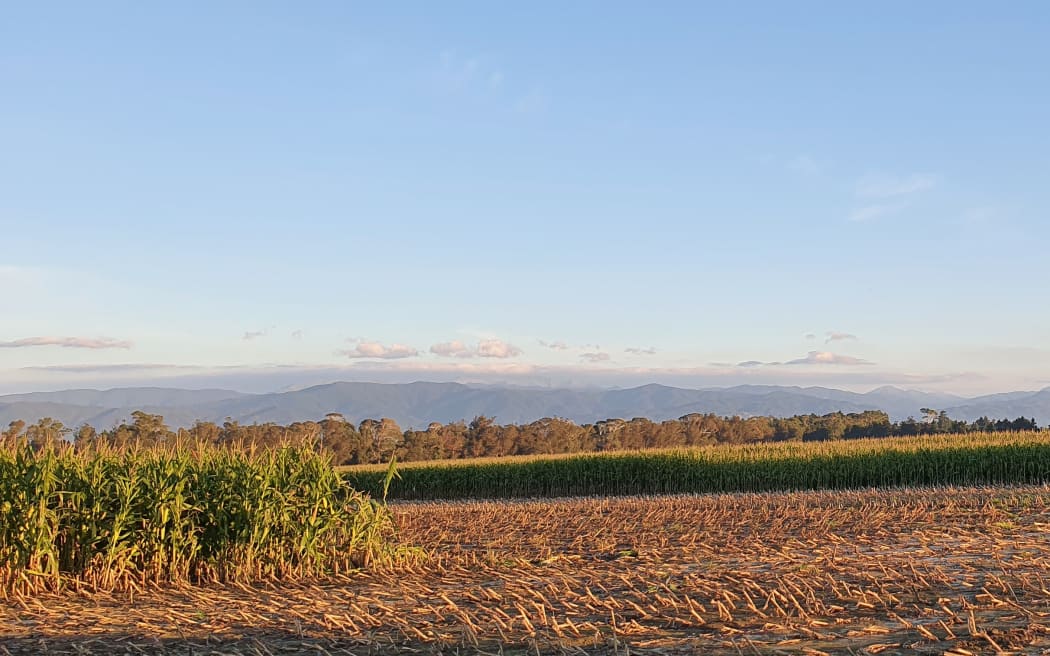
Maize harvest Photo: RNZ/Sally Round
It's tough in Wairarapa - it hasn't stopped raining since December. Maize in places hasn't been good to harvest due to flooding and on top of that - it's not been covered by insurance. There is a lot of lameness in dairy herds and sheep and beef stock has had trouble putting weight on cause of the lack of sunshine. In saying that, grass growth has been tremendous. Most grapes have been plucked off the vines and many are reporting lower yields.
More sunshine in Nelson would have also been welcomed. The hop harvest went well, with strong growth but generally lighter yields. However, new hop varieties proved their worth being higher producers and in strong demand. The area has more pasture standing than usual with heavy breeding ewes now mated. The weaner calf market was strong thanks to the surplus feed. There have been some improvements in the meat schedules but it certainly won't match the hike in costs such as energy, fertilizer, and interest rates to name but a few.
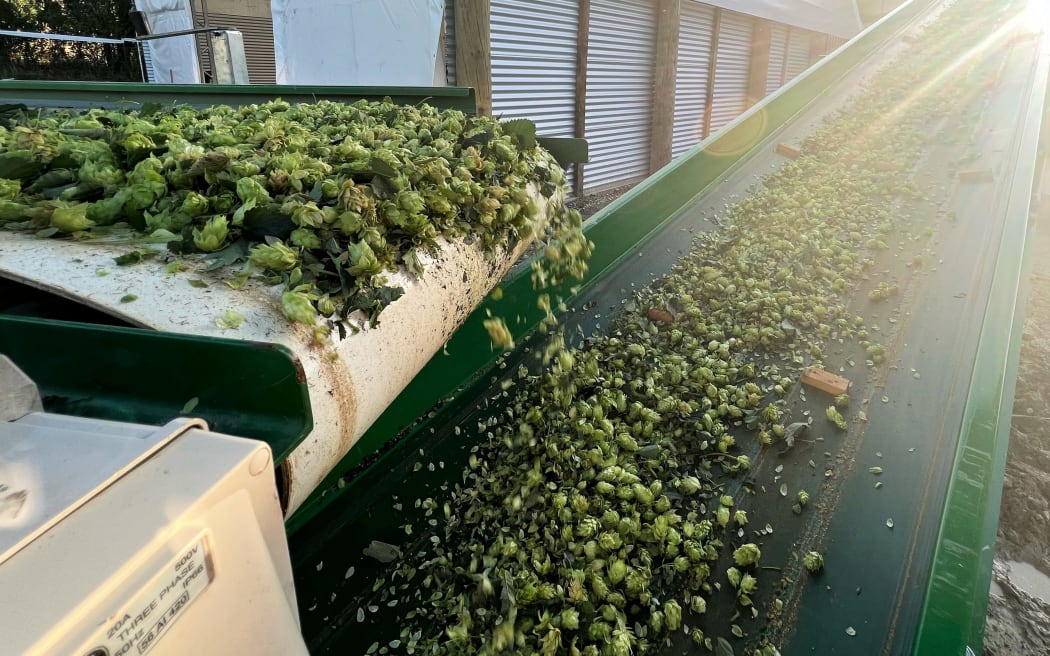
Photo: Supplied
Local greenshell Mussel producers in Marlborough are saying they haven't witnessed such slow growth in the condition of mussels in their memory. It may be due to cold weather in recent months. However, in the past few weeks, mussels have gained condition with seven lines of 10 being harvested. A sheep farmer says the cold spring has led to lighter lambs at weaning. Repairs at Kenepuru Road mean trucks are still struggling to reach remote properties - making fertilizer applications unaffordable. So he's relying on the soil's natural fertility to carry him through.
Despite the wet on the West Coast there hasn't been a lot of grass growth. It got our contact scratching his head wondering why. There's not as much tucker this time of year as he would normally have although he managed to harvest a good amount of supplementary feed - which is not the case for all of them on the coast. It's being fed out already, which is a bit earlier than he would like. Stock is doing okay, nothing flash, but still skipping around in the paddock and getting ready to dry off in the next few weeks.
Canterbury has been pretty wet which is good in terms of growing pasture, but difficult to get on to paddocks for silage harvesting. But with good growth, everyone across the region seems to be well set up for Winter. Speaking of, people are in winter mode already and starting to feed out baleage, and dairy heifers are moving around farms for wintering.
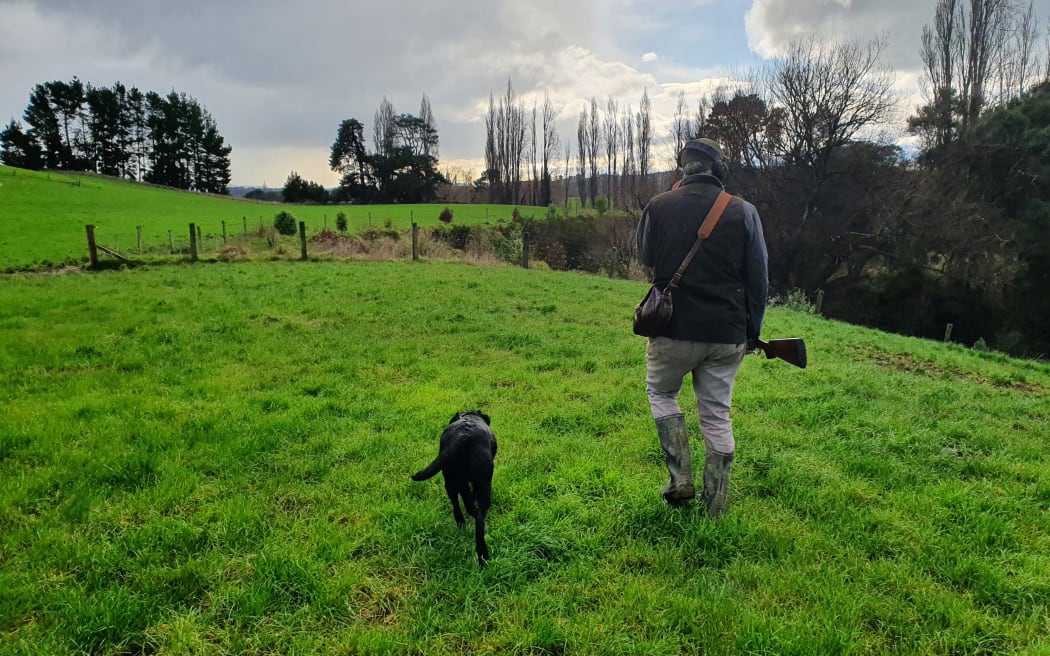
Photo: RNZ/Sally Round
The Autumn muster in Otago high country has finished - farmers tend to bring their stock down to lower levels for winter ahead of the snow that's sure to fall. The sheep tend to like the high country more, but you never know when the temperatures will snap. Crutching is also done and dusted. After a really dry start to summer and early autumn, farmers have welcomed the rain which has fallen steady over the past six weeks. It's been quite mild still with only the odd frost so there is good autumn growth around the place.
There won't be much work being done on farms in Southland this weekend - duck shooting season has arrived. Although, farmers can afford it, with most being in a pretty good spot. The dry at the start of the year was short and sharp and everyone has recovered well. Pasture covers are looking good and our contact says he's only feeding out two kilos of supplementary feed out as opposed to the 11 he was last year. There is a bit of lameness in the dairy herd as the wet rolls in but farmers are reducing the number of milks to give cows a bit of a break before they're dried off at the end of May.

